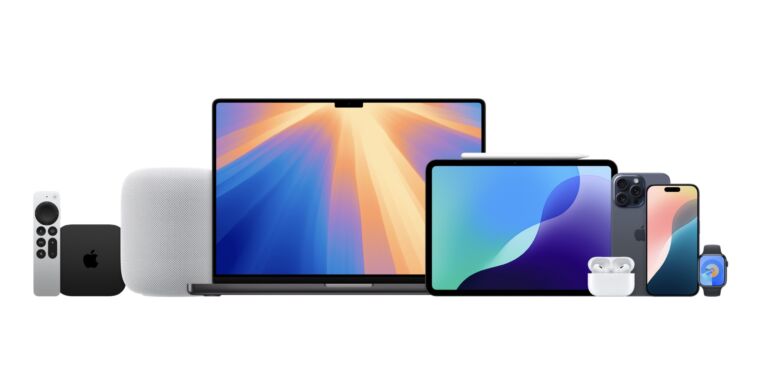Apple
Apple’s next-generation operating systems are taking their next step toward release today: Apple is issuing the first public beta builds of iOS 18, iPadOS 18, macOS 15 Sequoia, tvOS 18, and HomePod Software 18 today. Sign up for Apple’s public beta program with your Apple ID, and you’ll be able to select the public beta builds from Software Update in the Settings app.
We covered the highlights of most of these releases when they were announced during Apple’s Worldwide Developers Conference in June, including more home screen customization in iOS and iPadOS, window tiling and iPhone mirroring in macOS, RCS text messaging support across all of Apple’s platforms, and more. But Apple still isn’t ready to show off a preview of its Apple Intelligence AI features, including the text and image generation features and a revamped Siri. Many of these features are still slated for “later this summer” and will presumably be available in some form in the final releases this fall.
Most devices that can run iOS 17, iPadOS 17, and macOS 14 Sonoma will be able to update to the new versions, including owners of the last couple generations of Intel Macs. But a handful of older phones and tablets and the 2018 MacBook Air are being dropped by the new releases. The watchOS 11 update is also dropping the Series 4 and Series 5 models as well as the first-generation Apple Watch SE.
Apple is also not releasing a public beta build of VisionOS 2, the first major update to the Apple Vision Pro’s operating system. Users who want to try out new Vision Pro features ahead of time will still need to opt into the developer beta, at least for now.
Beta best practices
The first public betas are similar—if not identical—to the third developer beta builds that were released last week. Apple usually releases new developer betas of next-gen OS releases every two weeks, so we’d expect to see a fourth developer beta early next week and a second near-identical public beta build released shortly after.
Apple’s developer and public beta builds used to be more clearly delineated, with a $99-per-year developer account paywall put up between general users and the earliest, roughest preview builds. That changed last year when Apple made basic developer accounts (and beta software access) free for anyone who wanted to sign up.
Apple still issues separate developer/public beta builds, but these days it’s more of a statement about who the betas are ready for than an actual technical barrier. Developer betas are rougher and visibly unfinished, but developers likely have the extra patience and technical chops needed to deal with these issues; public betas are still unfinished and unstable, but you can at least expect most basic functionality to work fine.
Regardless of how stable these betas may or may not be, the standard warnings apply: Make a good backup of your device before updating in case you need to restore the older, more stable operating system, and don’t install beta software on mission-critical hardware that you absolutely need to work correctly in your day-to-day life. For iPhones and iPads that connect to iCloud, connecting the devices to a PC or Mac and performing a local backup (preferably an encrypted one) can be a more surefire way to make sure you keep a pre-upgrade backup around than relying on continuous iCloud backups.



)






